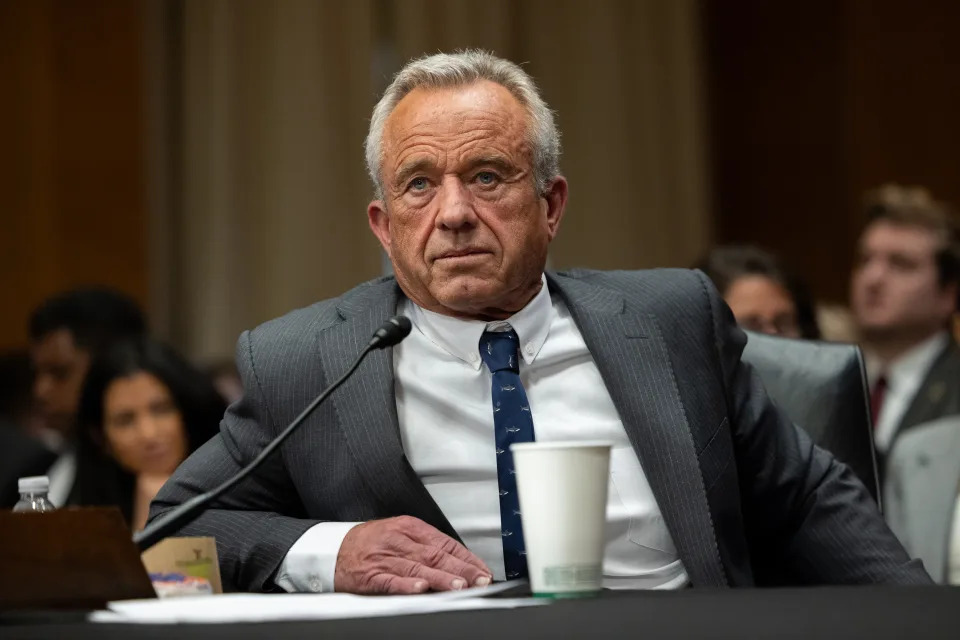Hims & Hers stock sees another spike in trading days after Super Bowl ad
Telehealth stock Hims & Hers ( HIMS ) spiked more than 24% in trading Thursday, days after its Super Bowl ad promoting cheaper GLP-1 weight-loss drugs sparked controversy.
The ad criticized the American healthcare system while advertising weight-loss options for patients at an affordable price, without clarifying which drugs — knockoffs or branded — the company was referring to.
"There are medications that work, but they're priced for profits, not patients," the ad said.
Companies responded to the ad , and congressional leaders raised concerns that the ad did not include known safety concerns and side effects.
The stock is now up 100% on the year and continues to climb more than $57 per share.
The stock's move followed the US Senate approval of Robert F. Kennedy Jr. as the new Health and Human Services (HHS) secretary, according to Mizuho's healthcare expert Jared Holz, largely driven by retail investor interest.
"Our sense, is that the RFK-led HHS will take a fairly lenient stance with respect to the GLP compounders provided the drugs are seen as safe," Holz said in a note to clients. "This incoming administration appears to be very focused on cost/benefit in the pharma industry, especially as it relates to preventative health," he added.
The enthusiasm comes from ongoing concerns over GLP-1 shortages, as both market leaders Eli Lilly ( LLY ) and Novo Nordisk ( NVO ) invest billions to ramp up production to meet demand. When the drugs were officially in shortage, it allowed compounding pharmacies to produce the patented products and sell at a lower price. That came with some concerns over safety of the compounded drugs, but it didn't stop consumers from giving telehealth players like Hims and Ro — another telehealth platform — an estimated 20% of the market. Lilly partnered with Ro to provide the vials of its drugs, rather than the convenient injectables, which has helped ease supply constrains.

The FDA officially removed Lilly's tirzepatide drugs , Mounjaro for diabetes and Zepbound for weight loss, from its shortage list, though concerns remain about the company's ability to meet current demand.
"While LLY and NVO have made progress on supply and commented that manufacturing efforts are now robust enough to meet demand, we question whether key decision makers care whether the majority of the U.S. gets branded drugs or versions from compounders," Holz wrote.
Novo's semaglutide drugs, Ozempic for diabetes and Wegovy for weight loss, remain on the FDA's list, but the company has pitched for removal based on its increased production. This has allowed telehealth providers like Hims and Ro to continue to offer compounded products, despite the threat that the supply will soon end.
Anjalee Khemlani is the senior health reporter at Yahoo Finance, covering all things pharma, insurance, care services, digital health, PBMs, and health policy and politics. That includes GLP-1s, of course. Follow Anjalee on social media platforms X, LinkedIn, and Bluesky @AnjKhem .

